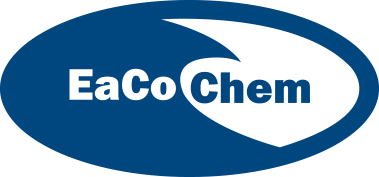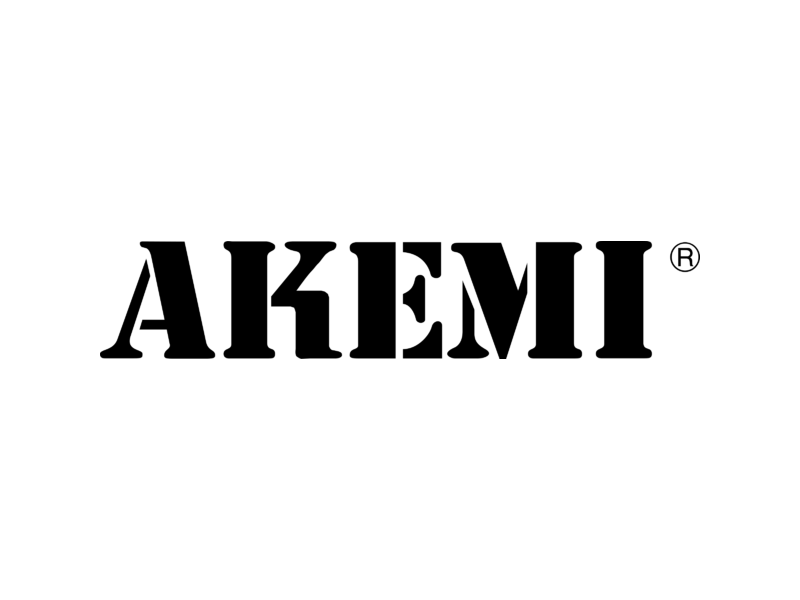
About Our Lab Services
LimeWorks.us offers an extensive list of laboratory services for the historic preservation professional, building owner, or contractor including our professionally produced Historic Mortar Analysis. Our analytical lab can create customized mortars, plasters and mineral paints which are fit for purpose to suit your project’s specific performance requirements. The original color and material characteristics of the original historic fabric can all be reproduced in a simulation sample sent back out to you from our laboratory. This is the first step to ensure for your project a smooth and qualified repair that can have a beautiful outcome when installed correctly by conscientious practitioners. For more details on our laboratory services visit the links on this page or continue reading below.

About Our Consulting Services
An on-site visit by a specialist from LimeWorks.us is highly recommended for masonry professionals or building owners who require a better understanding of the issues surrounding their project. A LimeWorks.us specialist will participate in an evaluation of your masonry project and a discussion regarding the noted symptoms and possible causes of any masonry deterioration. If applicable, repair material will be recommended, and insight given into the restoration process. This could help you in knowing what to look for when interviewing a professional mason in your area to gain better insight into their understanding of issues regarding historic masonry and how and when to use lime mortars, plasters and mineral coatings.
Consulting Links
Free Observation of Your Sample
A Free Observation of the material samples sent are great for homeowners, contractors, and professionals who want quick and straightforward answers. The result of the Free Observation helps to choose a product that is compatible to the original sample sent which has a look and feel similar to that of that historic sample sent to us. The Free Observation is a first step to help decide if further testing is a good idea. The Free Observation is not the test to absolutely determine material composition for proper documentation or closer replication purposes which would likely be needed to meet the standard of proof required by architectural professionals or historic oversight committees.
Free Observations come with a basic one-page report outlining the results and recommendations. The report is in PDF format and is emailed to the address provided on the submission form. Clients may opt to receive a phone call instead, but email will generally result in a quicker turnaround time.
Free Observations are just that – free! You only pay the cost to ship the sample!
Free Observations are quick, but due to the high volume of samples we receive for this service, it usually takes us 1-2 weeks to get back to clients.
Mail your sample accompanied by the completed LimeWorks.us Sample Submission Form. A Free Observation requires a solid sample (or several smaller solid samples) approximately the size of an average human thumb or about 2 inches. Individual samples should be separated into different baggies or other appropriately sized containers, clearly marked. If the sample has multiple colors or varied colors, you should mark what side or indicate which color you are trying to match. Samples can be fragile and should be packed well in a padded mailer or box. Do not place samples in an unpadded letter envelope. We recommend shipping via UPS or FedEx.
Custom Simulation
Custom simulations are for homeowners, contractors, and professionals who want a consistent, ready-to-use product without having to do the work of blending multiple colors or materials together themselves. Customs can also be produced for contractors and professionals who need a product made to a specification.
A Custom Simulation comes with a cured sample of the simulated product, a sample size of the raw product for you to do your own mockup, and a unique identifier code that you can use to order your custom product in any amount. Powdered products come with a quart of unmixed material, and liquid products come with a 2 oz. sample jar. Larger sample sizes available for an additional fee upon request.
There is a one-time fee of $200 per sample. Custom products generally cost more per unit after development.
Custom Simulations usually take two weeks (per one-three samples). If more samples are required (four+) add one week per additional sample. Rush processing is not available, because samples must be made by hand and cured to assess color.
Mail your sample accompanied by the completed LimeWorks.us Sample Submission Form. Remember, a simulation is based on the submitted sample, so it is very important to select the best representative sample possible. Samples need to be large enough to adequately show their texture and color. If the sample has multiple colors or varied colors, you should mark what side or indicate which color you want simulated. Samples can be fragile and should be packed well in a padded mailer or box. Do not place samples in an unpadded letter envelope.
We recommend shipping via UPS or FedEx. For paints, coatings, or where a sample cannot be extracted, we can also do simulations based from the color codes taken from paint swatch colors that are sent in using codes printed on the back of the swatch from any major paint brand.
Get the Sample Submittal Form
Basic Acid Digestion Historic Mortar Analysis
Basic Acid Digestion Mortar Analyses are often required by professionals and historic oversight committees as a first step to determining what kind of replacement mortar is most plausibly compatible with a historic structure. While a Basic Acid Digestion Mortar Analysis cannot provide enough information to fully recreate a historic mix, it can give insight into the properties of a building’s mortar so that more informed decisions can be made when choosing replacement materials. This kind of testing can also be useful for homeowners who just want extra assurance that they are choosing an appropriate replacement material and have a scientific report that supports the rationale for such materials to be used on their own historic masonry preservation projects.
A Basic Acid Digestion Mortar Analysis comes with an in-depth report outlining the results of the test with photos and data, including product recommendations both general and from the LimeWorks.us product line where applicable. The sands extracted from the samples are also sorted, cleaned, and mailed back.
The cost is $750 per sample.
Analysis usually takes 3-4 weeks with extended turnaround times possible during peak seasons. There will be one additional week added per sample. Due to the time required to accurately perform the various tests, rush processing is not available.
Mail your sample accompanied by the completed LimeWorks.us Sample Submission Form. A Basic Acid Digestion Mortar Analysis requires about 30g of solid samples. Usually, this Is around the amount that can fit in the average palm. Powder may be included, but testing cannot be performed on powder alone. Different samples should be separated in their own clearly labeled baggies or container. Because samples can be quite fragile, they should be well secured and placed in a padded mailer or envelope. Do not place samples in an unpadded letter envelope. We recommend shipping via UPS or FedEx.
Instrumental Mortar Analysis
Instrumental Mortar Analyses are often required by projects on culturally important or sensitive historic structures where a great deal of proof and justification are needed before selecting products or interventions or where specific causes of deterioration need to be identified. Because the test covers both mineralogy and chemical composition, it is also useful for understanding the techniques and sources of materials used by the original applicators. This kind of test is not usually required for homeowners or for less sensitive historic projects where mortars do not need to be precisely understood or replicated.
An Instrumental Analysis comes with an in-depth report summarizing the methods of testing and results with commentary on recommended mixes and, if applicable, LimeWorks.us products that meet the recommendations.
The cost of an Instrumental Analysis is generally $3300 per sample, but the cost may increase depending on the specific tests needed.
The time to complete an Instrumental Analysis is usually four to six weeks per sample. Rush processing is available for $6600 (or 2x base cost) per sample.
Mail your sample accompanied by the completed LimeWorks.us Sample Submission Form. Because of the variety of tests conducted in an Instrumental Analysis, a large amount of sample is needed—usually 100g or more. This is usually about two to two-and-a-half palmfuls of material. The sample must be solid; testing cannot be conducted on powder. Different samples should be separated in their own clearly labeled baggies or containers. Because samples can be quite fragile, they should be well-secured and placed in a padded mailer or envelope. Do not place samples in an unpadded letter envelope. We recommend shipping via UPS or FedEx.
Additional Testing Services
FAQ
Because testing and custom simulations can take time to produce and receive, we recommend planning for laboratory services at least six to eight weeks before beginning work. Our timetables are already trimmed as much as possible and are based on the physical limitations of our equipment and material. We recommend building testing and custom production into your timetable during the design phase to minimize any potential disruptions when it comes time for work to begin.
Turnaround times are calculated in business days from the time payment is received for fee-based services and from the time the sample is received for Free Observations.
We do not currently offer package pricing for services, but multiple services can be requested and conducted together.
We retain all submitted samples for at least a year and retain submitted paperwork for up to 20 years.
Yes, we can except in the case of Basic and Instrumental Analyses as these destroy the sample. For Free Observations, we ask you to pay return shipping. For Custom Simulations, we will include the sample with your shipment. In the case of Custom Simulations, we generally ask to retain a small portion of the sample in case a tweak is needed.
On older buildings, mortar joints have often been repointed many times over the years. Due to weathering characteristics from North, East, South and West sides of a building, the color, the raised aggregate texture, and the level of carbon or other staining may be different from all four sides therefore multiple samples may be required representing which side of the building they were taken from. If the plan is for full repointing then just samples from the best representative side can be sent in. If “Spot Pointing” in localized areas is what is planned so that the mortar missing is all that is being replaced then sending in samples taken directly from the adjacent area needing to be spot pointed is needed. This is a tricky job in blending the mortar to fade into the surrounding area for every area where the patch pointing will be carried out and not for novices to do. Clearly labeled bags need to be sent in and noting as much detail written on the bag and with the form as possible. Some of the best samples of original material that may have not undergone a great amount of degradation will come from places that have not had much work done to them or have been sheltered. Usually the places that are hard to reach or covered such as underneath stairs, under decks, in attics or basements, or behind paneling or wallpaper are places where cleaner samples can be found that not only show the color but more of the original joint profile so that the repointing work can mirror the original pointing style. Superficial pointing campaigns which used cement mortar over the top of historic mortar joints can sometimes be lifted out of the way to get to the original Pointing Mortar so that cement mortars are not inadvertently sent in to us and thought to have been the original pointing mortar. Original Bedding Mortar of mass-wall stonework is usually of a different composition than what is used for the Pointing Mortar. The Bedding Mortar in mass-wall stonework may be more sandy and lacking the solid composition to stay together and is usually darker and clayey in nature than the Pointing Mortar which is usually an off shade of egg-shell white. If sending in both Bedding Mortar and Pointing Mortar please once again use separate baggies and clearly label them as such. Bedding Mortar for stonework is generally 1.5-2” deep into a joint.
Yes, we can perform most tests on most types of plaster. Each layer of plaster would be considered a separate sample, so please indicate on your form which layer or layers that are requiring our services. Basic Acid Digestion Mortar Analyses cannot be performed on gypsum-based plasters.
Sometimes a representative sample cannot be taken because the material is too sensitive, too soft, or no original material remains. While we cannot do testing without a sample, we can do a custom simulation based on a paint swatch color code from most major paint manufacturers or other representative colors such as Munsell® or Pantone® that accurately reflects the color you want produced. Keep in mind that if you submit a paint swatch code or card with the code on it instead of an actual sample, we can only simulate the paint swatch color in a translation we make to mortar or plaster or mineral paints that are a muted shade of the paint swatch and not any glossy finish using our standard product line. Custom color simulated quart samples of a Lime Paint, LimeWash or Silicate Paint or of a Silicate ColorWash Stain must be tested on site applied to the actual building substrate in an inconspicuous area to approve the outcome of the sample installed before the whole of a building is completed with our products to be sure that a good match occurs to the satisfaction of the building owner once it is installed.
Yes, we can create samples that include other binders or materials not mentioned in our general product offerings of raw ingredients to the public. There may be extra costs depending on the material expense or labor involved. We are able to produce mixes that are custom formulated that include the appropriate type of Natural (Roman) Cement, certain types of Portland Cements, Air-setting low-temp fired limes, Hydrated limes both in conjunction with other Hydraulic binders or not, Trass and many other binders used world-wide based on the intent that the replacement material is being fit for purpose. Please speak with our Laboratory Manager for more details.
We can produce a wide variety of colors, but some colors are simply not possible in certain materials. For example, limewashes almost always look chalky which gives colors a dull pastel tone. Our staff will notify you before accepting payment if we do not think a color is possible. Historic materials are almost always reproducible, but modern vibrant paint colors can be difficult to reproduce in traditional materials.
Most times if a sample doesn’t look right it is the result of improper installation or unexpected job site conditions such as temperature, weather, or absorbency of surrounding material. At least three different people approve a simulation before it goes out, meaning that we do not generally ship anything that is not a good match to the submitted target. However, occasionally site conditions, real-world variations, or misunderstandings can result in a custom that is just slightly off. In these rare occasions, we will do a one-time tweak of a custom simulation for no additional cost. If more than one tweak is required, additional samples must be submitted and another $200 will be charged.
No. Compression testing on extracted mortar samples is not a legitimate way to assess a historic mortar’s strength. Mortar extracted from a site is often brittle, oddly shaped, and near or past the end of its service life meaning that good data cannot be reliably obtained from crushing it. While some firms will do this kind of testing, there is no ASTM standard for compression testing of extracted mortars nor any broadly accepted testing procedure. Indeed, ASTM C270 and C780 both strongly discourage the practice. Studies into the compression of extracted samples using samples of known composition have found that testing of this nature often does not accurately reflect the actual properties of the mortar mix. Instead, a testing regimen is considered and performed on extracted masonry samples to determine their density and porosity along with including factors that lend to general compressive strength. This is accomplished in order to prescribe a mortar mix that will inhibit masonry units from undergoing accelerated decay. We also consider the load bearing capacity of mortars so that the mortars put into service yield the structural integrity required for the specific application so that they properly support the installation of load bearing units or weather exposure for the intended application to which they will be installed.
All Custom Simulations come with a unique alphanumeric identifier code that is used to identify the product. Simply call us with the code or enter the code in the appropriate custom field on the website, and we can take it from there. Codes are retained indefinitely and can be used to order material at any point in the future.
We do not have access to recipes from any other company and cannot produce a custom based on another person or company’s recipes. We would have to do our own Custom Simulation.
Yes, we can make blends based on recipes provided by a client. The material will be priced the same as any other made-to-order blend. However, because the recipe did not originate with us, we cannot guarantee color or compositional accuracy. The client must accept all risk associated and is responsible for testing the mix first to make sure it is what they expect. We recommend ordering in small quantities like a quart first before ordering larger quantities.
We can make custom materials or supply our stock materials from a quart to multiple tractor-trailers of palletized bagged material that come in easy-to-handle paper bags or in one-ton super sacks.












